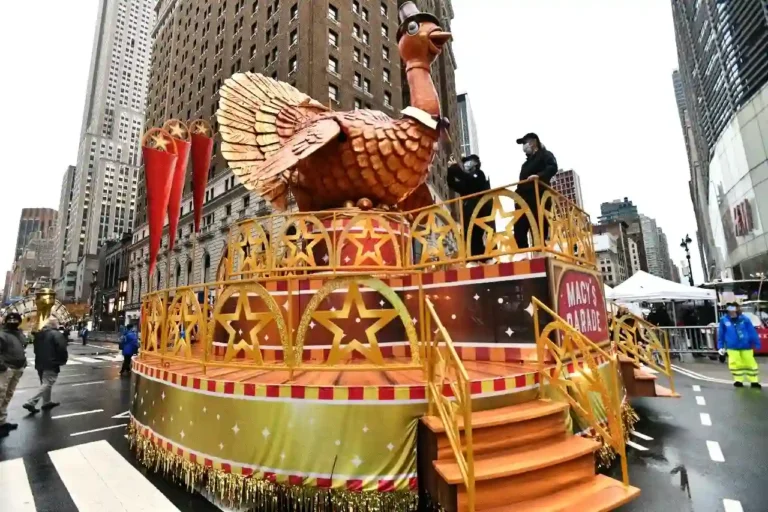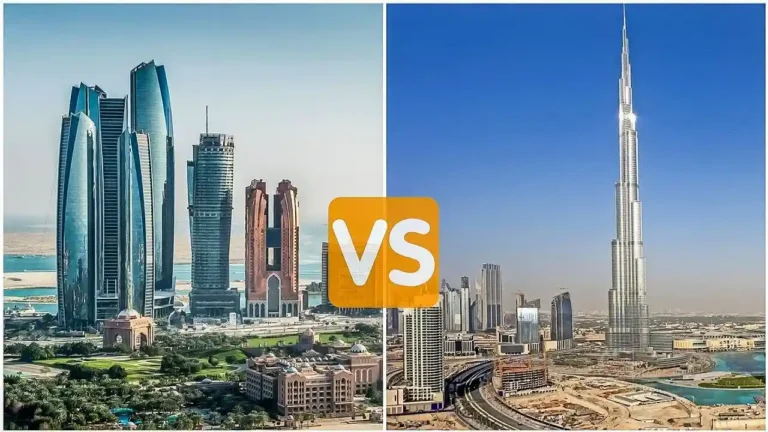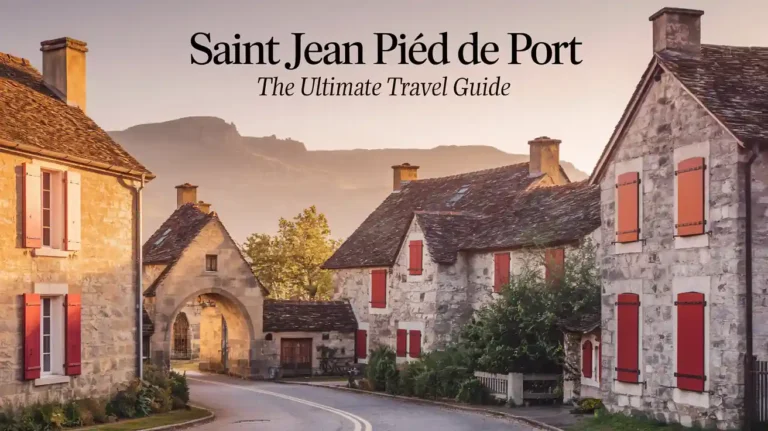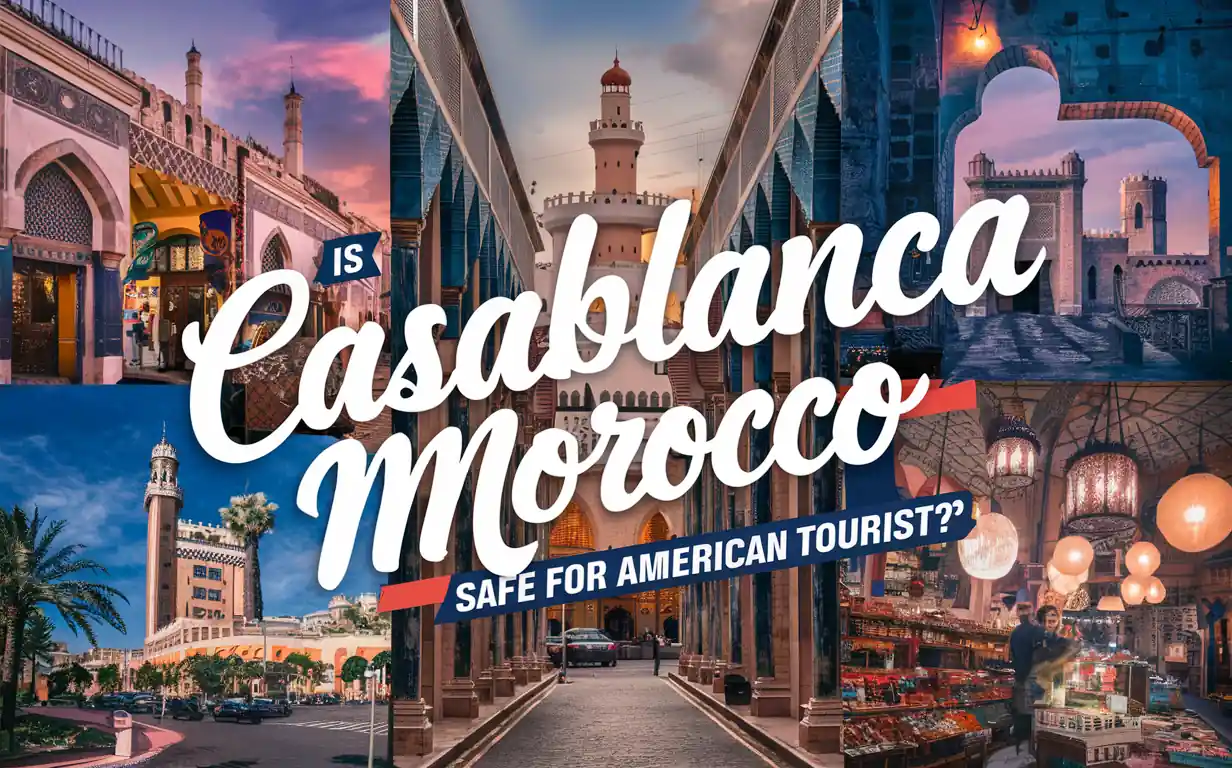
Casablanca might be Morocco’s economic powerhouse, but is it safe for Americans to visit in 2025? It’s a city that buzzes with life—modern, sprawling, and full of contrasts. You’ve got gleaming skyscrapers next to crumbling colonial facades, beach clubs a short drive from gritty neighborhoods, and a rhythm that feels both cosmopolitan and unmistakably North African.
Is Casablanca Morocco Safe for American Tourists
If you’re wondering, is Casablanca Morocco safe for American tourists, this guide gives you the full picture—based on facts, local insights, and real traveler experiences.
Safety Overview of Casablanca for Tourists
✔️ General Safety Index of Casablanca
Casablanca, as Morocco’s largest city, naturally comes with the complexities of any major urban center. According to recent data, Casablanca has a higher crime index compared to other Moroccan cities like Marrakech. However, it’s essential to note that these statistics often reflect perceptions and reported incidents, which may not capture the entire picture.
✔️ Is Casablanca Safe for Americans in 2025?
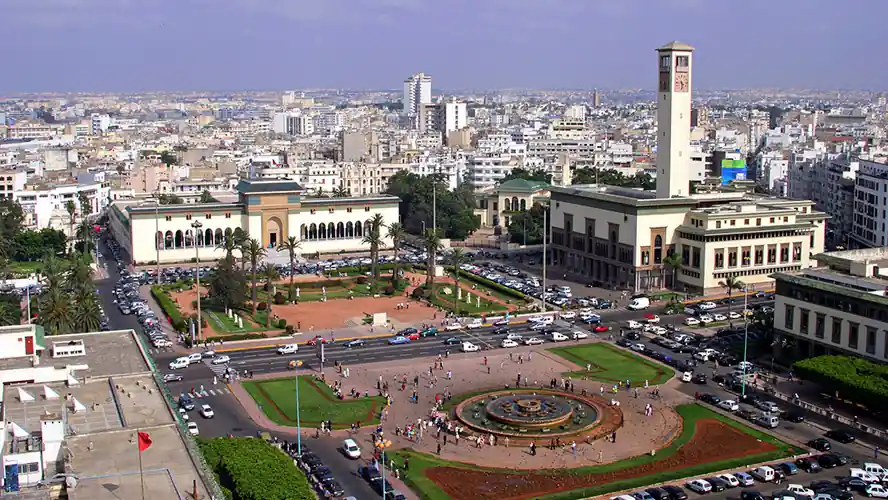
As of 2025, the U.S. State Department has issued a Level 2 travel advisory for Morocco, advising travelers to exercise increased caution due to potential threats of terrorism.
Casablanca, being a significant urban center, is included in this advisory. However, this doesn’t mean the city is inherently unsafe; it simply suggests that travelers should remain vigilant and informed.
✔️ Day vs. Night Safety – Are Different Neighborhoods Safer Than Others?
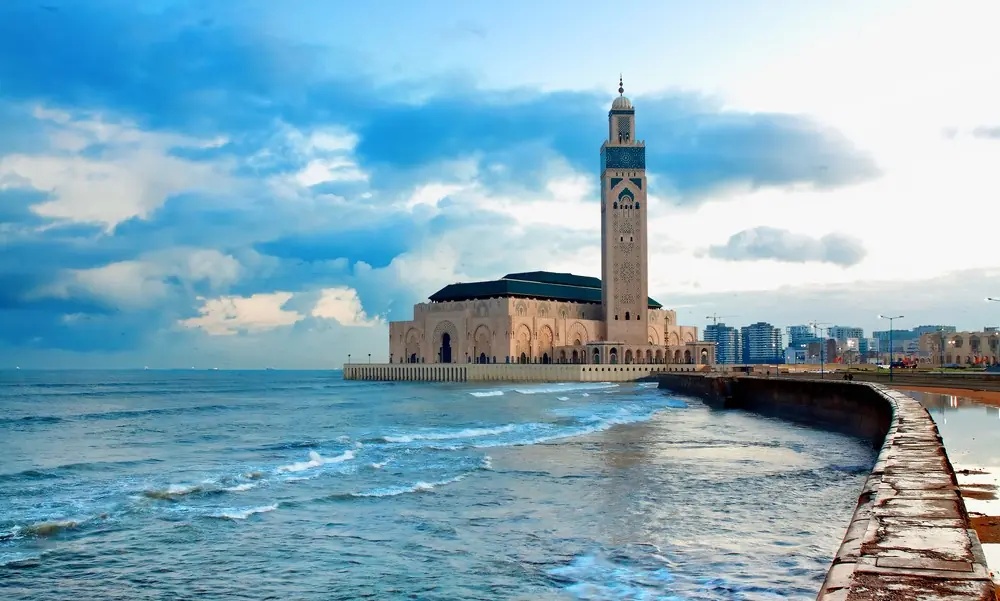
During the day, most parts of Casablanca are bustling with activity and are generally safe for tourists. However, like many large cities, certain areas can become less secure after dark.
It’s advisable to avoid poorly lit or deserted streets at night and to use reputable transportation options when moving around the city after sunset.
✔️ Common Petty Crimes – Scams, Pickpocketing & How to Avoid Them
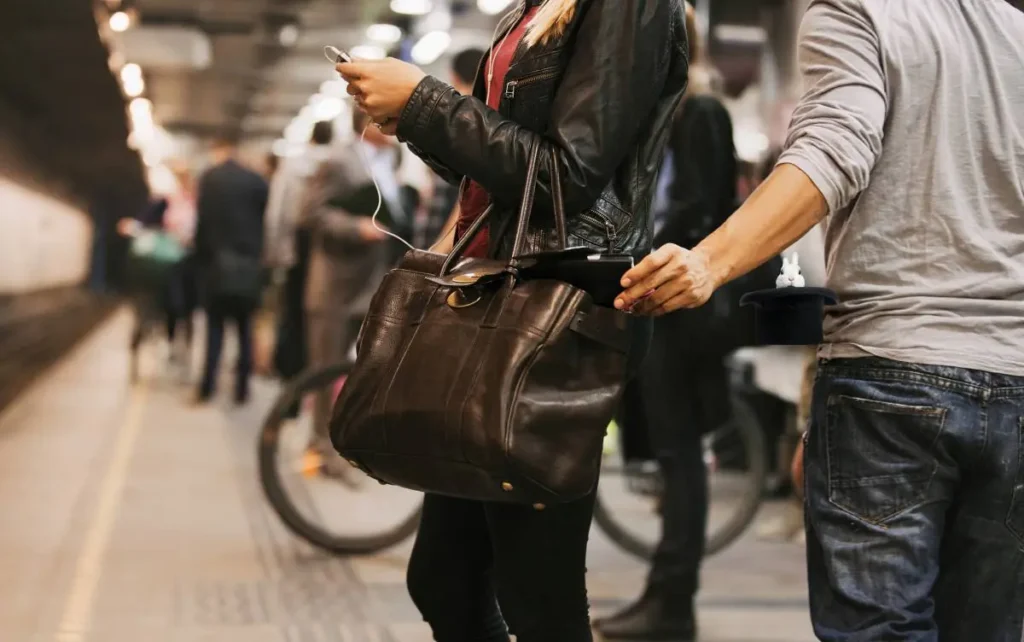
Petty crimes such as pickpocketing and scams are common in crowded areas like markets, public transportation hubs, and tourist attractions. To minimize risks:
- Keep your belongings secure and avoid displaying valuable items.
- Be cautious of unsolicited offers or overly friendly strangers.
- Use licensed taxis or reputable ride-hailing services.
- Stay informed about common scams targeting tourists.
Neighborhoods in Casablanca: Where to Go & Where to Be Cautious
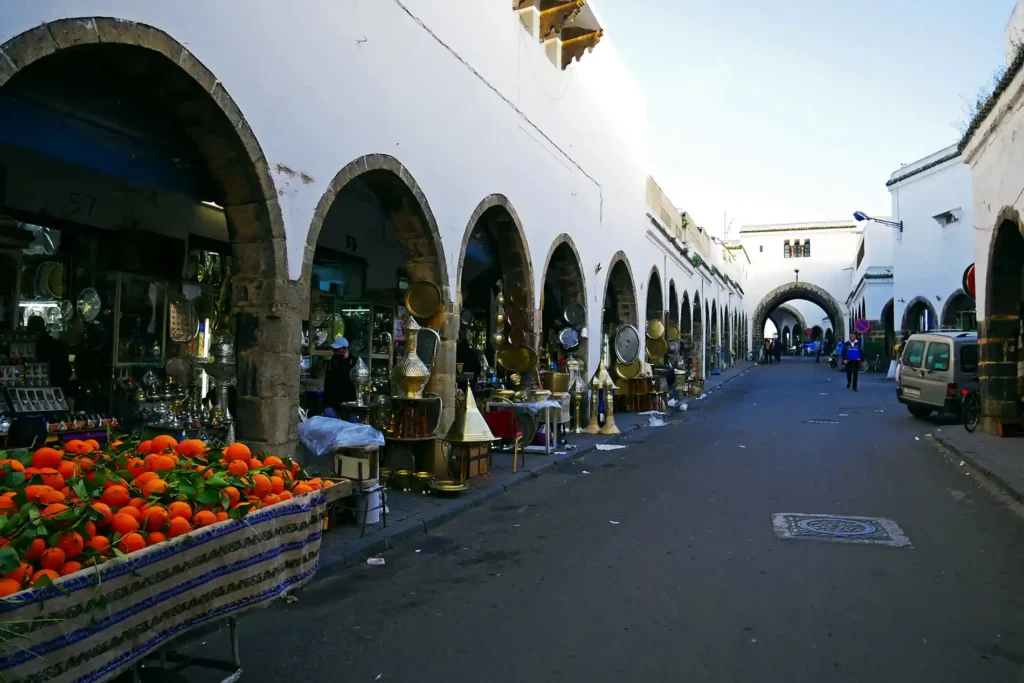
✔️ Tourist-Friendly Areas
Casablanca is a sprawling city with a mix of modern urban life and traditional Moroccan culture. When you book 8 Days tour from Casablanca, you can explore a number of unique areas and neighboring towns to taste the luxe adventure of Morocco.
Some neighborhoods stand out for being more welcoming, lively, and generally safer for tourists, making them ideal bases for your stay or day visits:
- Maarif: This district is a favorite among travelers who want a modern Moroccan city vibe. It’s packed with shopping centers, international brands, trendy cafes, and a variety of restaurants ranging from local eateries to upscale dining. The streets here are busy, well-lit, and frequented by locals and visitors alike, which adds to the feeling of safety. Plus, you’ll find plenty of public transport options, making it easy to explore.
- Gauthier: If you’re looking for an upscale neighborhood with a cosmopolitan feel, Gauthier fits the bill. It’s known for its chic cafes, boutique hotels, and some of Casablanca’s best restaurants. The ambiance here is more relaxed, and the streets are clean and quiet, especially in the evenings. This neighborhood attracts a mix of expats, young professionals, and tourists, making it feel secure and comfortable.
- Corniche: Stretching along the Atlantic coast, the Corniche is Casablanca’s seaside playground. Here you’ll find sandy beaches, seaside promenades, and a lively nightlife scene with clubs and beach bars. It’s a popular spot for both locals and tourists, especially during weekends and holidays. Walking along the Corniche after sunset is generally safe due to the crowd and visible security presence, but it’s still wise to stay aware, especially if you venture into less populated corners.
- Anfa: Known as one of Casablanca’s most affluent neighborhoods, Anfa offers luxury hotels, villas, and exclusive residential areas. It’s quieter and greener than other parts of the city, with well-maintained streets and upscale amenities. Staying or visiting here gives you a taste of Casablanca’s high-end lifestyle, with added comfort and security.
✔️ Areas to Exercise More Caution In
While Casablanca is mostly safe for tourists, certain neighborhoods require a bit more awareness and caution, especially if you’re unfamiliar with the city or visiting after dark:
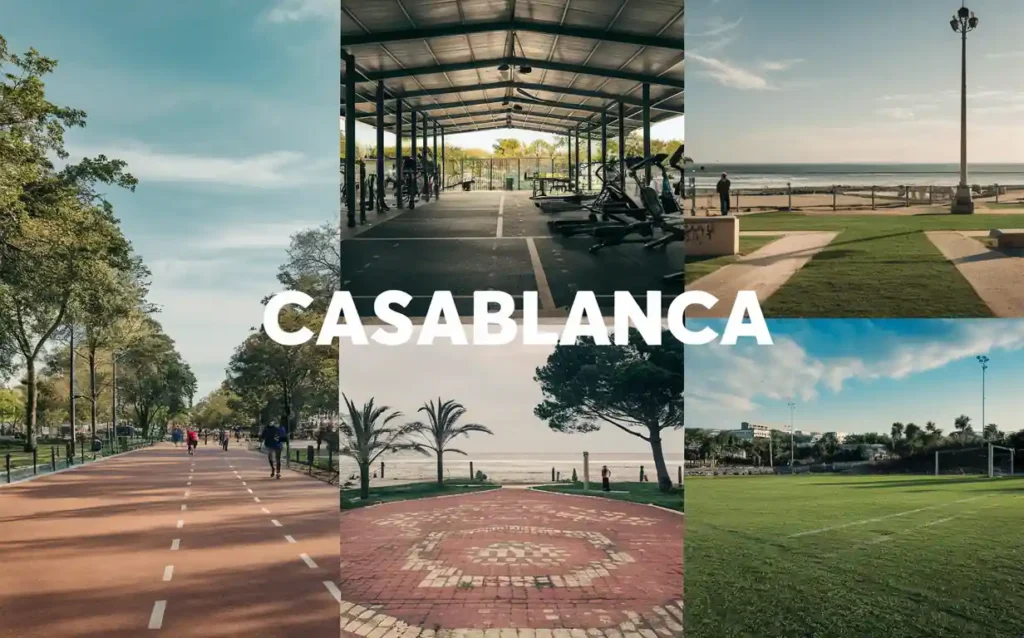
- Hay Mohammadi: This area has a rich cultural and historical background but has faced socio-economic challenges over the years. It’s a densely populated neighborhood, and some parts can feel less secure, especially for solo travelers or those unfamiliar with the area. If you’re curious to explore, consider going with a trusted local guide and avoid wandering off main streets.
- Derb Sultan: Known for its traditional markets and a bustling local vibe, Derb Sultan can be an interesting place to visit during the day. However, it’s densely packed and can get chaotic, making it easier for pickpockets or petty crime to happen, especially at night. Visitors should stay alert, avoid showing valuables openly, and consider visiting during daylight hours only.
- Sidi Moumen: This neighborhood has a vibrant community and is culturally significant, but it’s not typically on the tourist trail due to its reputation and occasional unrest. If you want to experience an authentic slice of Casablanca life here, it’s best done with a local guide who knows the area well and can ensure your safety.
✔️ Safe Accommodation Options – Hotels vs. Airbnb vs. Riads
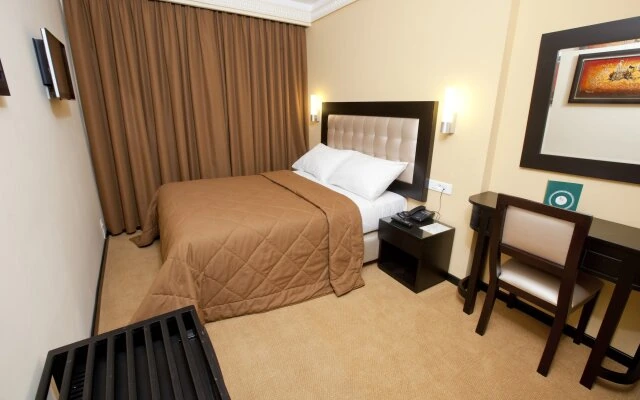
Casablanca’s accommodation scene is diverse, catering to different tastes, budgets, and travel styles:
- Hotels: International hotel chains such as the Hyatt, Sofitel, and Sheraton offer standardized services, including security protocols, multilingual staff, and concierge assistance. These hotels are usually located in safer neighborhoods like Anfa or Maarif and provide peace of mind for first-time visitors.
- Airbnb: Staying in an Airbnb can provide a more local and personalized experience. However, when booking, carefully check the reviews, host responsiveness, and neighborhood safety. Properties in well-known districts like Gauthier or Maarif are generally safer. It’s smart to communicate directly with hosts about safety measures and building security before confirming.
- Riads: Although more common in cities like Marrakech and Fes, Casablanca also has some traditional riads converted into guesthouses. These are Moroccan-style homes centered around a courtyard and offer a cultural immersion in an intimate setting. Riads tend to be located in quieter parts of the city or within the old medina, so confirm the safety and accessibility before booking.
✔️ Police Presence & Tourist Support Services
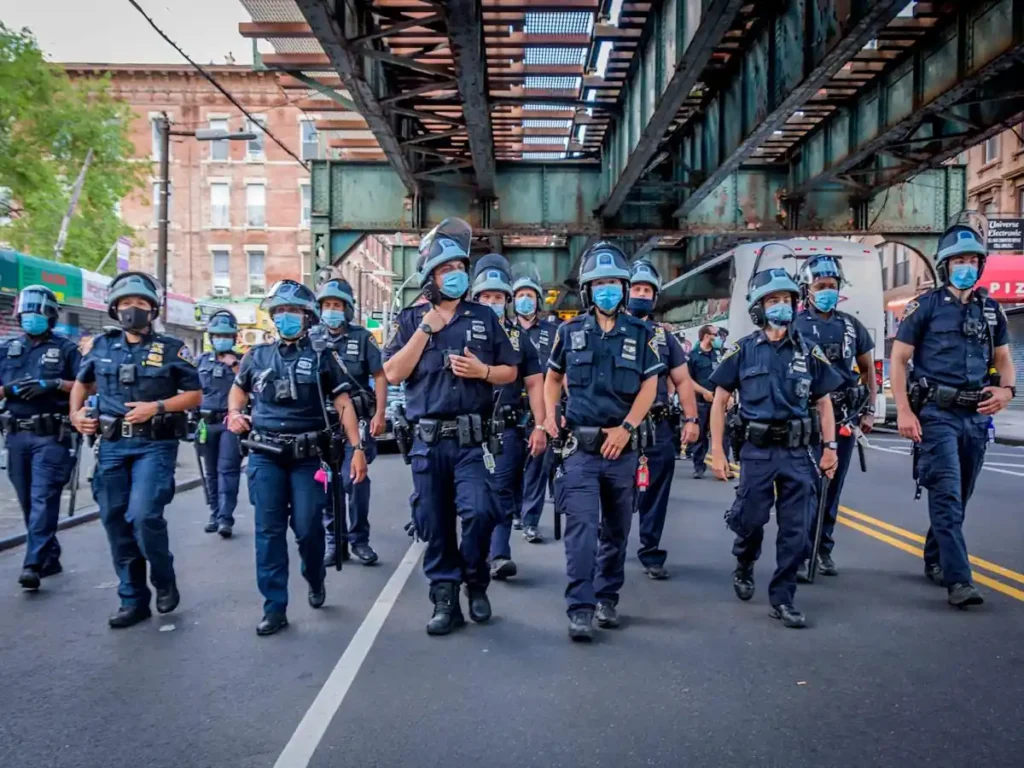
Casablanca maintains a visible police presence, particularly in tourist-heavy neighborhoods, shopping districts, and transport hubs. The city also has a specialized tourist police force whose role is to assist visitors with any issues — from directions and minor disputes to emergency situations.
- Emergency Numbers:
- Police: 190
- Ambulance/Medical Emergency: 150
- Fire Department: 160
- It’s a good practice to save these numbers in your phone and know the location of the nearest police station to your accommodation. Many hotels and riads can help with this info upon arrival.
- Additionally, some neighborhoods and tourist spots have official tourist help desks or kiosks where you can get maps, safety tips, and immediate assistance.
How American Tourists Can Stay Safe in Casablanca?
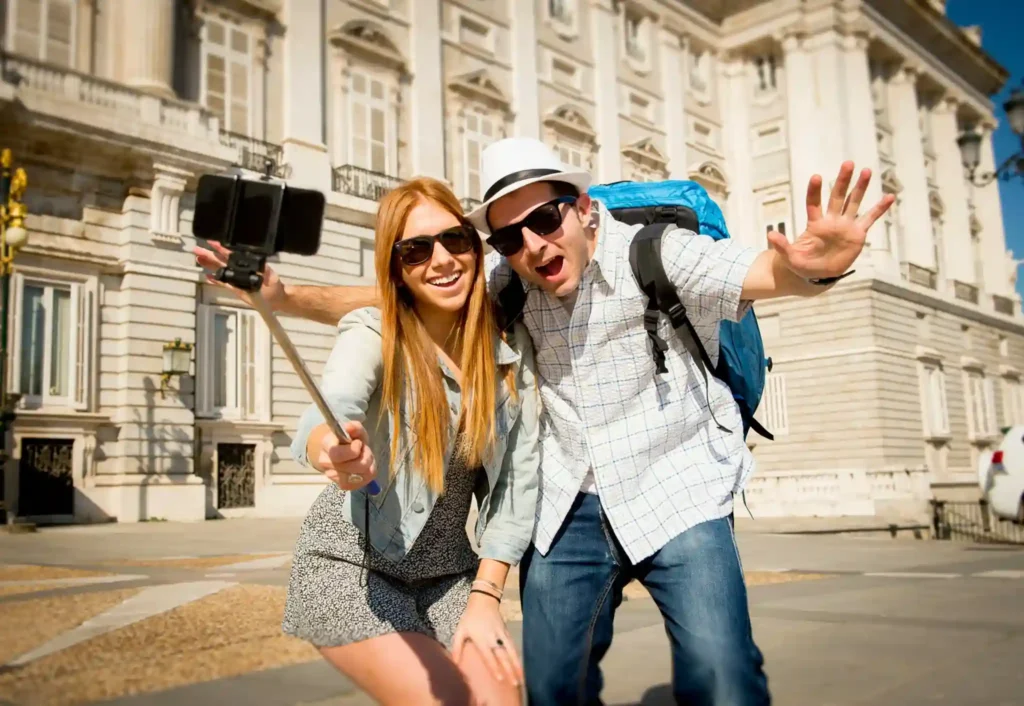
✔️ Cultural Awareness – Local Customs, Dress Code, and Behavior
Respecting local customs is crucial:
- Dress modestly, especially when visiting religious sites.
- Public displays of affection are frowned upon.
- During Ramadan, be mindful of eating and drinking in public during daylight hours.
✔️ Handling Money Safely – ATMs, Taxis, and Street Vendors
- Use ATMs located in secure areas like banks or shopping centers.
- Always agree on taxi fares before starting your journey or ensure the meter is running.
- Be cautious when dealing with street vendors; it’s common to negotiate prices.
✔️ Transportation Tips – Taxi Scams, Uber, Trains, and Walking
- Taxis: Opt for official red taxis and avoid unlicensed ones.
- Ride-hailing apps: Services like Careem are available and offer a safer alternative.
- Trains: Efficient for intercity travel; ensure you keep an eye on your belongings.
- Walking: Safe during the day in most areas; avoid deserted streets at night.
✔️ Emergency Numbers & What to Do if You Need Help
- Police: 19
- Ambulance: 15
- Fire Department: 15
- Tourist Police: 0522-240000
In case of emergencies, contact your nearest embassy or consulate.
Solo & Female Travelers: Is Casablanca Safe for You?
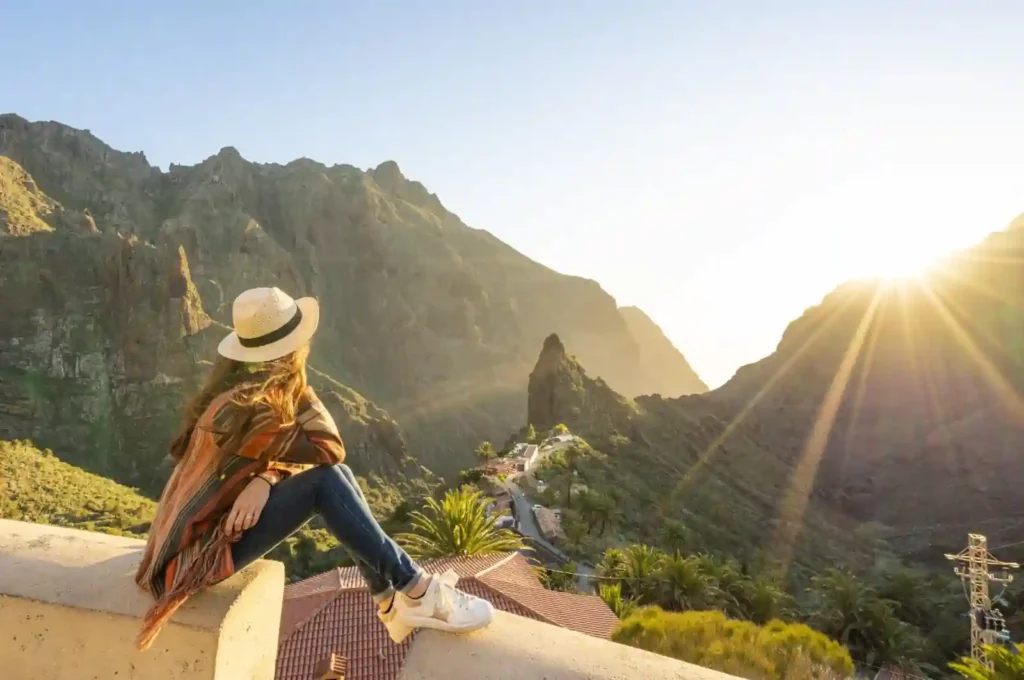
✔️ Female Travel Safety Tips in Casablanca
- Dress conservatively to avoid unwanted attention.
- Avoid walking alone at night in unfamiliar areas.
- Be cautious when interacting with strangers; trust your instincts.
✔️ LGBTQ+ Travelers – Cultural Sensitivity and Legal Realities
Homosexuality is illegal in Morocco. LGBTQ+ travelers should exercise discretion and avoid public displays of affection. (source:thetimes.co.uk)
✔️ Navigating Attention, Stares, and Unwanted Interaction
It’s common for tourists, especially women, to receive attention. A polite but firm response usually deters unwanted interactions.
✔️ Testimonials from American Solo Travelers
Many solo travelers have shared positive experiences in Casablanca, emphasizing the importance of staying alert and respecting local customs.
Health, Hygiene & Food Safety in Casablanca

✔️ Can You Drink the Tap Water?
If you’re new to Morocco, this question probably pops up early — and the short answer is: better to avoid tap water in Casablanca, just like most other Moroccan cities. While the water supply is technically treated, the pipes and plumbing infrastructure can sometimes be outdated or inconsistent, leading to potential contamination risks.
Most locals stick to bottled water, and so should you. When buying bottled water, always check that the seal is unbroken — even in big supermarkets, it’s a good habit.
Carrying a refillable bottle and topping it up at trusted sources is eco-friendly and wallet-friendly. Some travelers also bring portable water filters or purification tablets if they’re planning to stay longer or travel extensively outside Casablanca.
✔️ Street Food & Restaurant Safety Tips
One of the best ways to experience Casablanca is through its food — but as delicious as street food can be, it demands a bit of caution. Here are some tips that many seasoned travelers swear by:
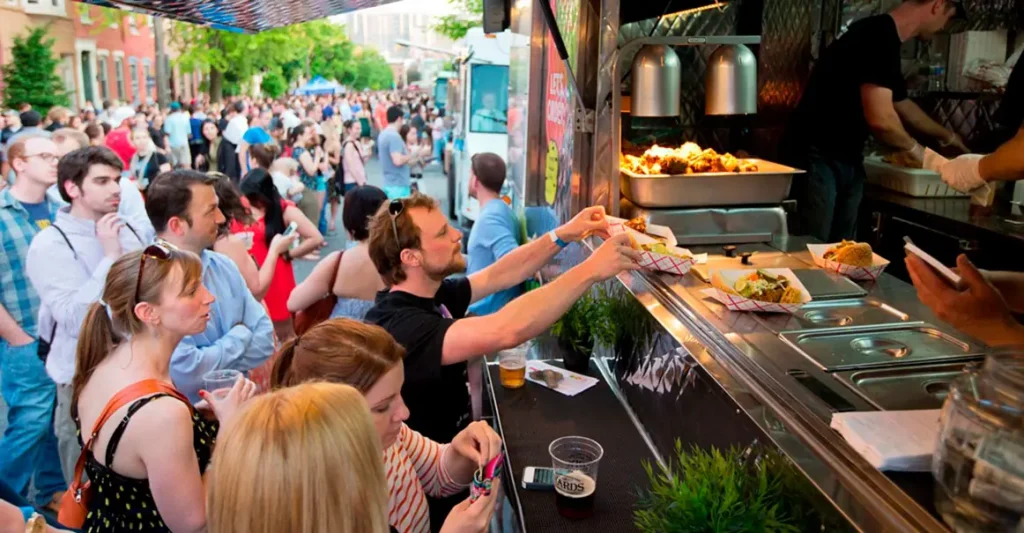
- Choose busy spots: A bustling street stall or café usually means the food is fresh and popular with locals, which is a great sign. Empty places might mean stale or less safe food.
- Avoid raw or undercooked foods, especially meats and seafood. Moroccan cuisine has many mouthwatering cooked dishes — tagines, couscous, grilled fish — so it’s easy to stick to safer options.
- Be cautious with salads and fresh fruits, which might be washed with tap water. If you want to be extra safe, peel fruits yourself, or ask for cooked or dried fruits instead.
- Wash fruits and vegetables thoroughly before eating, preferably with bottled or purified water. If you’re staying in a hotel or riad, see if they can provide filtered water for washing produce.
Restaurants in Casablanca range from casual cafés to high-end dining. Tourist-heavy areas tend to have better hygiene standards, but always trust your instincts. If a place looks clean, well-maintained, and has visible kitchen activity, you’re usually in good shape.
Nearest Hospitals, Pharmacies, and English-Speaking Doctors

Casablanca is home to several modern hospitals and clinics that meet international standards. If you need urgent care, hospitals like Clinique Badr and Clinique du Parc are well-regarded. Private clinics often have English-speaking staff and doctors, but it’s helpful to bring your medical history or prescription translations if possible.
Pharmacies (or “pharmacies” as locals call them) are widespread and easy to find throughout the city. Pharmacists are usually knowledgeable and can recommend over-the-counter medications. In many cases, they speak some English, but having basic French or Arabic medical terms handy can be a lifesaver.
For serious medical issues, the U.S. Embassy in Rabat provides a list of recommended doctors and hospitals. It’s a good idea to save these contacts before your trip.
✔️ Travel Insurance – Why It’s Recommended
No one expects emergencies while traveling, but Morocco’s vibrant energy means sometimes things don’t go as planned — minor injuries, illnesses, lost luggage, or even unexpected trip cancellations.
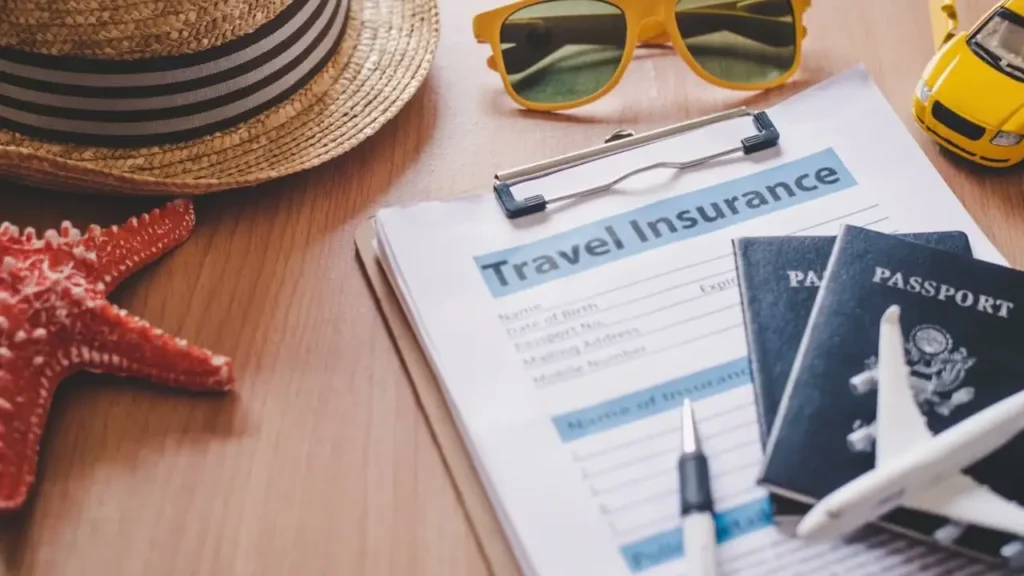
That’s where travel insurance steps in as your safety net. A good travel insurance plan covers:
- Medical emergencies, including hospital stays, doctor visits, and emergency evacuations if needed.
- Trip cancellations or interruptions — if your flight is delayed or you need to change plans for health reasons.
- Lost or stolen belongings, which is always a risk when navigating busy markets or crowded tourist spots.
Many travelers say that having travel insurance gave them real peace of mind — knowing they wouldn’t be stuck with huge medical bills or stranded abroad. Policies vary, so make sure you pick one that covers Morocco specifically, and read the fine print about COVID-19 coverage or pre-existing conditions if relevant.
Comparing Casablanca Safety to Other Moroccan Cities
✔️ Casablanca vs. Marrakech – Which is Safer for Americans?
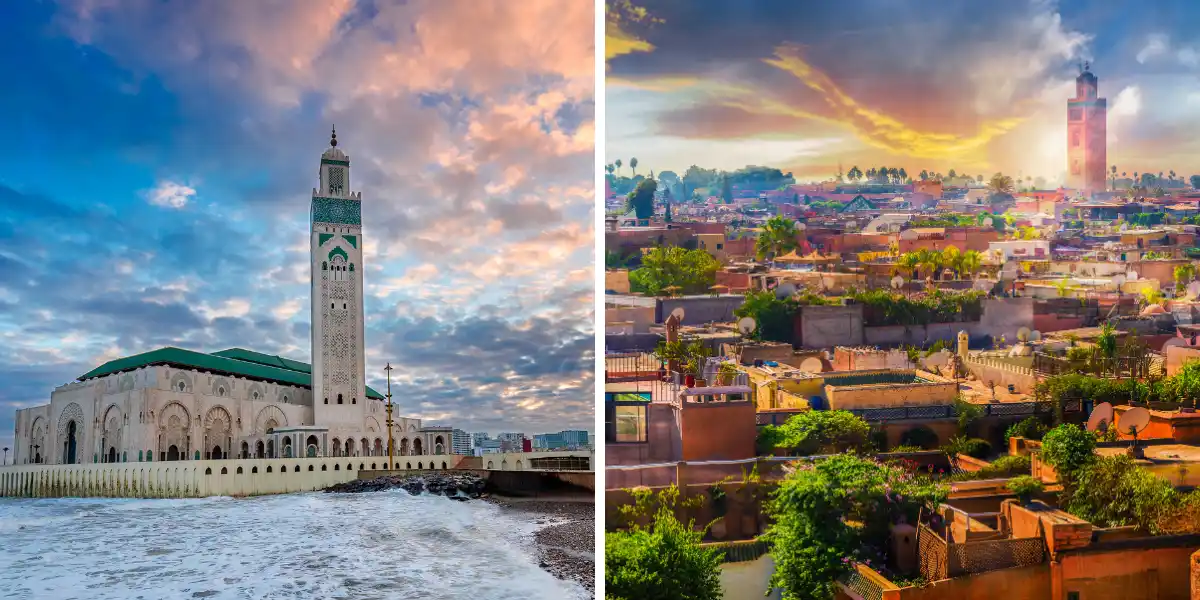
Casablanca and Marrakech couldn’t feel more different, yet they’re often weighed side-by-side by American travelers trying to decide where to land first. Casablanca’s a sprawling, coastal metropolis — Morocco’s financial heart — while Marrakech leans into its traditional flair, full of historic souks, riads, and red-hued alleyways that feel like stepping into a storybook.
So… which one’s safer?
Honestly, safety-wise, they’re not wildly different on the surface. Both cities experience petty crimes like pickpocketing, especially in crowded markets, near tourist hotspots, or anywhere you look like you’re not quite sure where you’re going.
Casablanca might feel more “Western” in some ways — wider streets, more modern infrastructure, lots of locals commuting to business hubs — while Marrakech can feel more maze-like, especially within the old Medina walls.
One American traveler mentioned feeling more “on edge” in Marrakech, not because something bad happened, but because the maze-like streets made her feel disoriented and easier to target.
Casablanca’s grid layout, on the other hand, offers fewer surprise turns — but being a larger city, it comes with the usual big-city tradeoffs: more traffic, more scams around major transportation hubs, and yes, more people asking if you “need help with directions” that somehow leads to them asking for money later.
In short, both cities are relatively safe if you use common sense — keep your valuables tucked away, avoid empty streets at night, and be extra cautious in packed areas.
Neither city is immune to opportunistic crime, but neither is wildly dangerous either. It just depends on your comfort level with chaos vs. concrete.
Casablanca vs. Fes – Different Vibes, Different Risks?
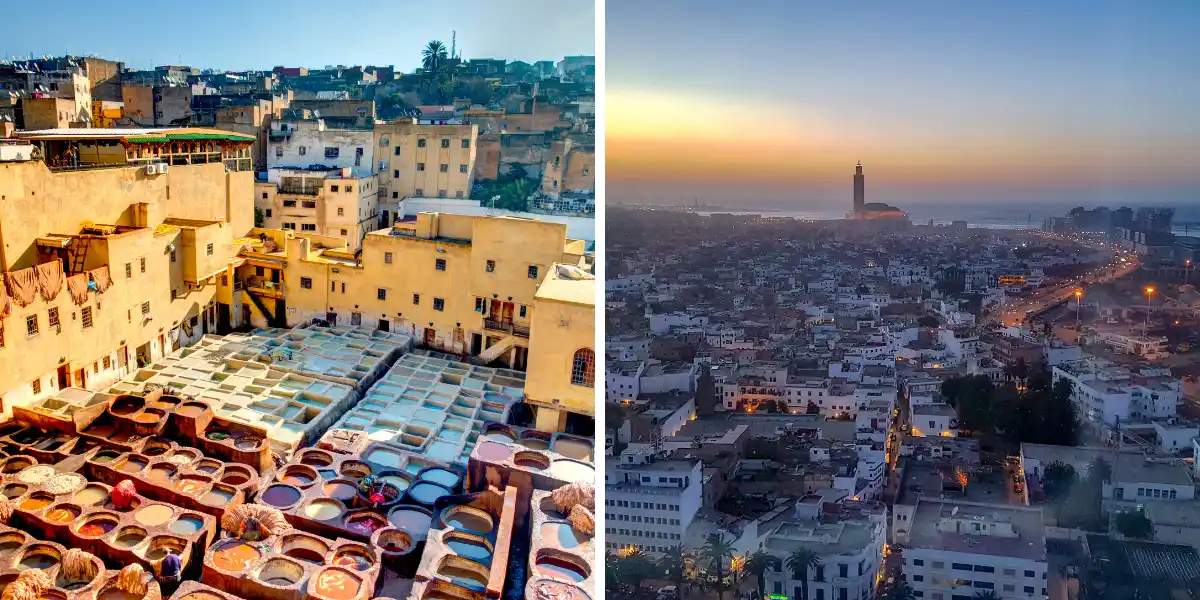
Fes has a charm you won’t find in Casablanca — narrow winding alleys, ancient gates, artisan workshops tucked behind unmarked doors. It feels older, deeper, more “authentic,” depending on what you’re looking for. But that vibe comes with its own quirks.
The Fes el Bali Medina is a UNESCO World Heritage site… and also a bit of a labyrinth. Even with Google Maps (which isn’t always accurate here), it’s easy to get turned around.
That’s fine when you’re sightseeing, but it can be unnerving when you’re lost and someone approaches offering to guide you — only to demand a tip later. Or worse, steer you into a shop where you feel pressured to buy something.
Safety-wise, Fes is not necessarily more dangerous than Casablanca, but the confusing geography and low lighting in some alleyways make it easier for pickpockets or scammers to thrive. Some solo travelers report feeling a bit overwhelmed in Fes, especially after dark.
Casablanca, while not as photogenic, has broader roads, more signage, and a slightly more familiar rhythm for many Americans. It’s also easier to flag down official taxis, find a police station, or access modern hospitals and clinics in case something goes wrong.
So… it depends. Fes offers a cultural deep dive, but Casablanca may feel a little more predictable — at least in terms of layout and infrastructure.
Urban vs. Rural Travel Safety in Morocco
There’s a certain serenity in Morocco’s rural areas — especially if you’re the type who prefers quiet, mountains, or desert landscapes over honking horns and city chaos.
Places like the High Atlas Mountains, Ourika Valley, or remote desert towns on the way to Merzouga are genuinely stunning. But rural travel comes with a different set of risks, and they’re not always crime-related.
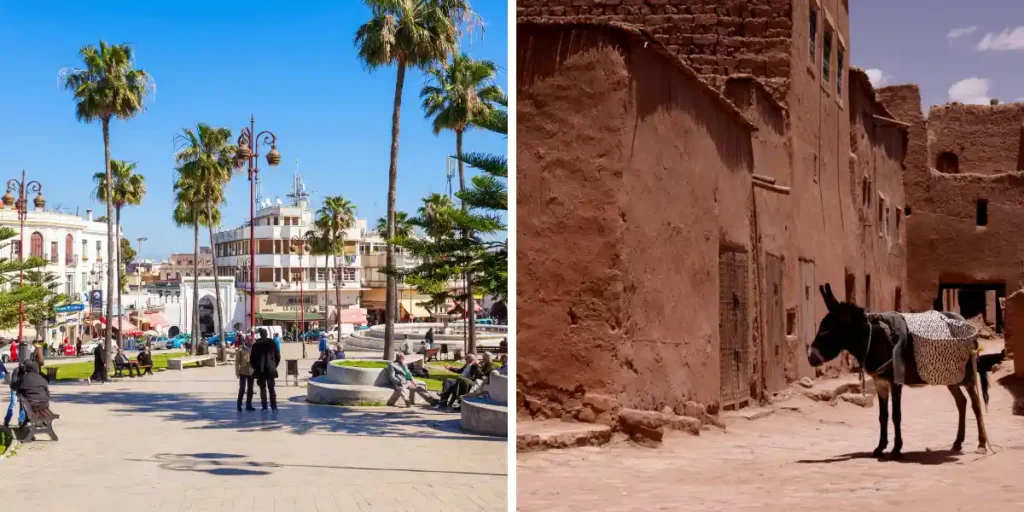
Let’s be real — you probably won’t find much violent crime in remote Moroccan villages. Locals are often warm and curious toward foreign tourists, especially in places where fewer pass through.
But services? Sparse. If you get food poisoning from a roadside stall or twist your ankle during a hike, getting to a modern hospital or clinic might take a while. And if you’re driving yourself, countryside roads can be tricky — poorly lit, narrow, and often shared with pedestrians, donkeys, or even goats.
Also, law enforcement and consular services are mostly concentrated in larger cities. If you need help — from a translator to the U.S. consulate — you’re better off being closer to a major city like Casablanca, Rabat, or Marrakech.
That said, many tourists love the rural side of Morocco for its authenticity. Just be sure to bring a basic medical kit, travel insurance, bottled water or a LifeStraw filter, and download offline maps. Oh, and don’t expect Uber in the mountains.
In summary:
- Urban Morocco (like Casablanca) = better access to emergency services, hospitals, transport, and infrastructure.
- Rural Morocco = lower crime, higher tranquility, but riskier if you’re unprepared or not fluent in French/Arabic.
A good rule? Spend your first few nights in a city to acclimate, then venture out — maybe even try a 7 Days tour from Casablanca to combine both vibes.
Real Experiences: What American Tourists Say About Visiting Casablanca
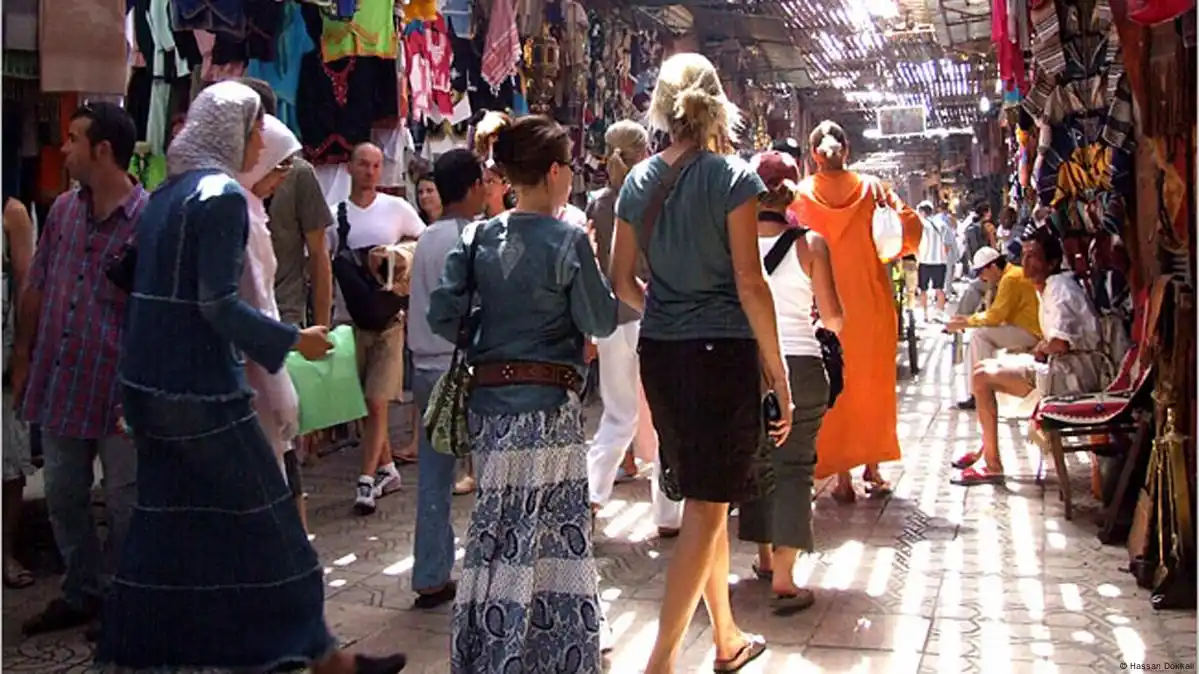
Stories from Recent Travelers (Solo, Couples, Families)
Many American tourists have shared positive experiences in Casablanca, highlighting the city’s rich culture, friendly locals, and vibrant atmosphere. Common advice includes staying aware of your surroundings and respecting local customs.
Highlights vs. Challenges – Honest Opinions
Travelers often praise Casablanca’s architecture, cuisine, and coastal views. Challenges mentioned include navigating the city’s traffic and dealing with occasional aggressive vendors.
Travel Forums, Reddit, and TripAdvisor Insights
When scanning through Reddit threads, TripAdvisor reviews, and travel blogs from Americans who’ve visited Casablanca recently, you’ll see a pattern:
- Positive takes often mention how welcoming locals were, especially when travelers made the effort to learn a few French or Arabic phrases.
- Concerns usually center around persistent street hustlers near tourist sites, especially the Hassan II Mosque and the old medina.
- Redditors frequently advise future travelers to download offline maps and to pre-book transportation for airport pickup to avoid taxi scams.
- Several users on TripAdvisor emphasized that, while Casablanca might not feel as “touristy” or charming as Fes or Chefchaouen, it’s still worth visiting for a modern Moroccan experience.
Final Tips for a Safe, Smooth Trip to Casablanca
- Stay Alert in Crowded Spaces – Always keep your valuables close, especially in markets, train stations, and the Corniche area.
- Don’t Overpack Day Bags – Keep it simple. Phone, a bit of cash, ID copy, and a water bottle.
- Blend In Where You Can – Avoid flashy outfits or jewelry. Simple, modest clothing goes a long way.
- Ask Hotel Staff for Advice – They can suggest safe routes, book legit taxis, and even flag known scam hotspots.
- Trust Your Gut – If something feels off—whether it’s a “friendly” local pushing you toward a rug shop or a taxi driver refusing the meter—walk away.
- Save Local Emergency Numbers in Your Phone – That one’s non-negotiable.
So, Is Casablanca Safe for American Tourists in 2025?

Yes—with awareness.
Casablanca is not a dangerous destination, but it’s not Disneyland either. It’s a big, energetic North African city with all the beauty, buzz, and occasional chaos that come with that.
If you’re an American tourist who stays alert, respects the culture, and avoids unnecessary risks (especially at night), chances are you’ll have a safe, enriching trip.
Final Thought
Casablanca might not be as Instagrammable as Chefchaouen or as romanticized as Marrakech—but it’s a city with energy, complexity, and heart.
And with a bit of awareness, respect for local culture, and common sense, it’s a perfectly safe destination for American tourists looking to explore Morocco’s more modern edge.
Frequently Asked Questions
Q: Can I walk around Casablanca alone as an American?
A: Yes, especially in neighborhoods like Gauthier, Maarif, and the Corniche—during daylight hours. At night, stick to well-lit, populated areas and use a taxi or ride app if unsure.
Q: Is Casablanca safer than Marrakech or Fes?
A: It’s about equal, but Casablanca is more urban and less touristy. That means fewer scams aimed at tourists, but also less support for first-time travelers.
Q: Is there anti-American sentiment in Casablanca?
A: Not commonly. Most Moroccans are welcoming. Knowing a bit of French or Arabic can go a long way in creating goodwill.
Q: Are there safe taxis in Casablanca?
A: Yes—look for the small red taxis with meters. Or better yet, use Careem (similar to Uber).
Q: Should I get travel insurance for Morocco?
A: Absolutely. It’s affordable and covers everything from lost luggage to hospital visits, which can really save you in an emergency.

